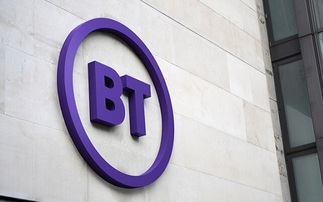BT, Vodafone, Virgin Media and Sky all have their say on whether BT should be separated from its network infrastructure arm
Conversely, BT's Shurmer believes that there is evidence that a structural separation would make matters worse.
"There are less than a handful of markets that have gone through structural separation: Australia, New Zealand and Singapore are some of the examples. What you find in those markets is that structural separation was the price of government investment in a FTTH rollout and prices are higher in those markets, rollout is much slower and take-up is lower," he said.
Shurmer told Computing that only BT would "put its hands in its pockets" to invest in fibre, but Sky believes that the £2.5bn it has invested in its fibre rollout has been funded in part by cutting spending on other critical parts of the network - with service quality and reliability suffering as a result.
But BT counters by asking, if FTTH is the right long-term fast broadband solution, why aren't the likes of Sky, TalkTalk and Vodafone investing in it themselves.
"Given our modern economy being so reliant on the internet, it is time to stop being held back by BT's lack of ambition and under-investment," the report states.
As for the issue regarding delays to fixing faults and slow installation times, Ovum's Howett believes that BT has the same complaints against Openreach as its rivals - showing that there is no discrimination in favour of their own retail division.
So what is likely to happen?
BT's Shurmer is unsure whether Ofcom's document will be categoric or whether it will keep a number of options in relation to BT-Openreach on the table.
Howett suggested that Ofcom is unlikely to have a say in the fibre investment area, stating that the communications regulator does not like getting involved in those discussions even though the government has given it a duty to be mindful of investment.
He did, however, suggest that Ofcom's push to ensure there is a minimum of 10Mbps across the UK could be included within the review.
Howett believes that there will certainly be some change from what the current situation is.
"My view is that Ofcom have always been reluctant to call for the full structural separation. And the discussions I've had with them suggest that they probably think it's a disproportionate response to the problems there are with the current model so I'd be surprised if we saw a full structural separation of Openreach," he said.
However, he believes that there will be a "strengthened" functional separation with a greater emphasis on quality of service for Openreach and in particular better repair and fault times.
If Ofcom's review does in fact conclude that there should be a structural separation of BT, then the case would have to be referred to the Competition and Markets Authority (CMA), which would have to establish whether there is an "adverse effect on competition" if BT did continue to own Openreach.
If the CMA then decided to press ahead with a structural separation of BT and Openreach, then there is the question how long such a split would take.
TechMarketView's Holway believes it could be a couple of years before anything is likely to happen.
But Vodafone's Braovac said there was no reason why it would have to take a long time.
"BT managed to spin off its [former] mobile arm (Cellnet) in less than a year, if BT chose to do it, it could do it extremely quickly," he said.
BT's chief executive, Gavin Patterson, has warned Ofcom that if it did take that path it would incur 10 years of litigation - a threat that Ofcom chief Sharon White has said she isn't scared of.
"The only reason people seem to think it will take a long time is because they think BT has an army of lawyers that they would deploy to prevent it from happening," said Braovac.
"If the rules that exist today are effective in ensuring that Openreach treated everyone exactly the same, including the downstream part of BT, why would they want to fight it for 10 years and spend millions of pounds on litigation," he asks.
Ofcom's review document is likely to come out later this month. The communications regulator said it could not reveal any further details about the review.






















